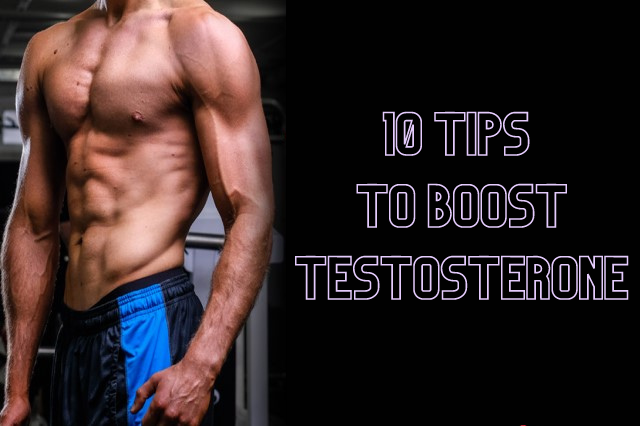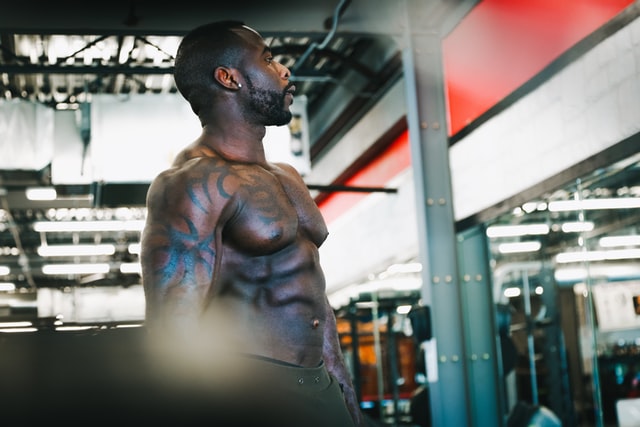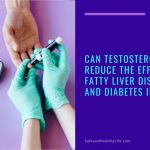
Almost every one of us is aware of testosterone. It is a common word in the bodybuilding world. Many people think that testosterone only provides muscle growth and therefore most people boost it to get just as muscular as Arnold Schwarzenegger and the hulk.
But besides ensuring the production of muscle tissue, testosterone does a lot more in the body. In this article, we take a detailed look at what testosterone does for our health and how you can increase it naturally.
What is Testosterone?
The word testosterone is a combination of testicles and steroids. The reason is that testosterone in men is produced in the testicles from cholesterol. Cholesterol is also called an asteroid, which means that chemically it consists of a ring structure.
Testosterone is a hormone or messenger substance in the body. Hormones regulate many functions in the body and can thus influence processes.
Testosterone is very important for the health of both men and women. Both men and women need balanced testosterone to stay healthy, but it gets more difficult as testosterone levels drop sharply with age.
What Does Testosterone Do?
This hormone ensures that our cardiovascular system is vital and powerful, we have more muscle and less fat, our bones are strong, we have a healthy libido, more fertile, enough energy, full of self-confidence, and feel good.
Testosterone deficiency can have far-reaching mental consequences: you can become forgetful or even depressed. In addition, recent studies link anemia and testosterone deficiency.
Low testosterone levels have been associated in the medical literature with obesity, diabetes, metabolic diseases, and atherosclerosis.
Increasing testosterone

Photo by Felipe Galvan from Unsplash
From the age of 30, the testosterone level decreases annually by an average of 0.8% per year. Increasing your testosterone levels can make you more vital and stronger in a matter of weeks.
Administering synthetic testosterone as an anabolic steroid can have many side effects, including high blood pressure, stomach problems, liver problems, emotional lability, aggression, insomnia, kidney damage, and testicular retraction.
Fortunately, you can increase your body’s testosterone level in many natural ways as well.
1. Taking these supplements
Mother nature has gifted us with numerous best testosterone supplements such as Ashwagandha, creatine, and zinc that can increase your testosterone naturally. In the elderly, DHEA is an option to try.
Taking vitamin D supplements can also increase testosterone levels by 20%. There are also a few supplements like Testogen that are effective, safe, and worth trying for boosting your test level.
2. Eat enough calories
Crash diets can drastically decrease testosterone levels. A crash diet generally consumes 1000 – 1200 kcal. With a negative energy balance of up to -15%, no adverse effect on testosterone was found.
Researchers recommend eating enough protein and healthy fats for optimal testosterone levels. Sufficient carbohydrates are also important, especially during exercise. Refined sugars, such as in soda, are very detrimental to testosterone levels.
3. Avoid stress
The stress hormone cortisol can lower testosterone. Many people often experience fussiness and stress, which causes cortisol levels to be continuously elevated.
The body can handle temporary stress very well, by compensating via so-called allostatic processes.
When the body has to do this too often, it can get stuck in this, resulting in chronic high cortisol levels and low testosterone levels. Rest and relaxation are therefore crucial.
4. Get enough sleep
Men who take good sleep have more testosterone in their blood. People who sleep only 5 hours a night have a 15% lower testosterone level on average. A good night’s sleep boosts testosterone levels.
5. Stay away from xenoestrogens
Some chemicals have estrogenic effects, such as BPA in plastics. Drinking from plastic bottles is therefore not recommended. The inside of many cardboard packaging and cans is also made of plastic, which can contain BPA.
Prefer to drink from a glass or stainless steel. Incidentally, BPA also occurs in receipts and some drinking water pipes.
6. Don’t drink alcohol
Drinking a lot of alcohol has a lowering effect on testosterone. This is partly because alcohol can cause the stress hormone cortisol to rise. Alcohol can temporarily increase testosterone (hence the increased libido), but in the long run, it can make our testosterone drop.
7. Get sunlight
We make vitamin D in our skin when exposed to sunlight. Increasing your vitamin D status in your blood can also increase testosterone levels. This may also explain the increased libido that many people report on sunny summer days.
8. Drink a Little Coffee
A little bit of caffeine can stimulate testosterone release. Be careful though, because too much coffee can actually trigger the production of cortisol.
There is some evidence that a lot of green tea is detrimental to testosterone levels. Green tea contains catechins (especially of the ECGC type) that can hinder the production of testosterone.
9. Maintain a healthy weight
Being overweight is usually associated with low testosterone levels. Fat tissue contains the enzyme aromatase, which can convert testosterone into estrogen. This can create a negative spiral, as estrogen stimulates the deposition of fat under the skin.
10. Regular Exercises
Exercise can cause your testosterone to rise significantly, especially if you are overweight. Strength training works best according to researchers, but High-Intensity Interval Training (HIIT) is also effective.
With strength training, it is smart to train especially the large muscle groups, such as squat, deadlift, bench press, row, pull-ups, and push-ups.
Conclusion
It should be clear that testosterone plays a very important role in health for both men and women. Unfortunately, hypogonadism (having a low total testosterone level) is common in Western countries. With the tips above, this can be changed. So get started!
About The Author:
David Dadson is a health enthusiast & fitness trainer who has been helping people fight their obesity, fitness, and gynecomastia-related issues since 2012.




